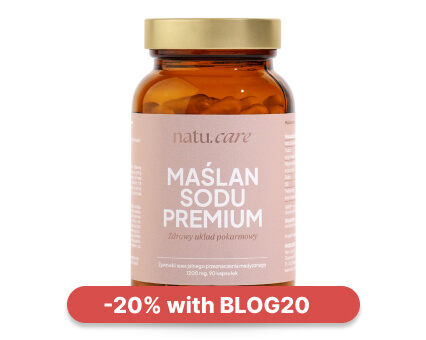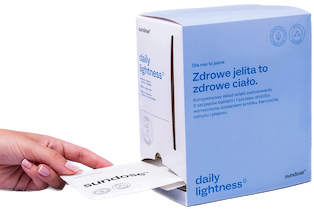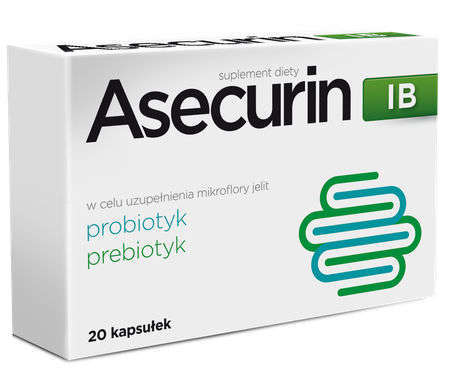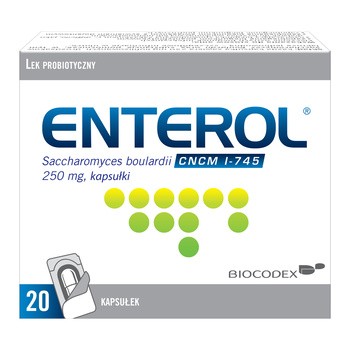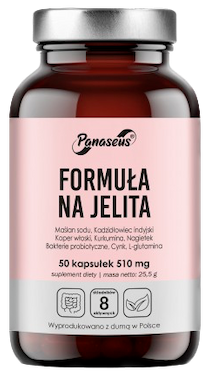Prebiotic (vs probiotic) - what it is, how to use it, natural examples
Prebiotic improves gut health, supports the immune system and supports heart health.


Learn more about our editorial process
.

Learn more about our editorial process
.

Learn more about our editorial process
.

Learn more about our editorial process
.
Why you can trust us
Articles on Natu.Care are written based on scientific research, data from government websites and other reliable sources. The texts are written in cooperation with doctors, nutritionists and other health and beauty experts. Articles are reviewed before publication and during significant updates.
.Learn more about our editorial process
.Information about advertisements
Content on Natu.Care may contain links to products from the sale of which we may receive a commission. When creating content, we adhere to high editorial standards and take care to be objective about the products discussed. The presence of affiliate links is not dictated by our partners, and we select the products we review ourselves completely independently.
.Learn more about our terms and Conditions
.Prebiotic, probiotic, and on top of that, synbiotic. Similar names, but slightly different effects and uses. It's hard to get to grips with these biotics, and you just want to be full of strength.
That's why, together with clinical nutritionist, Julia Skrajda we'll explain what a prebiotic is and when it's worth betting on them.
From this article you will learn:
- What is a prebiotic and how it differs from a probiotic.
- What does a prebiotic help with and what are the natural forms of prebiotics.
- When to take a prebiotic.
- When it is worth taking a prebiotic and whether it is used in cosmetics. .
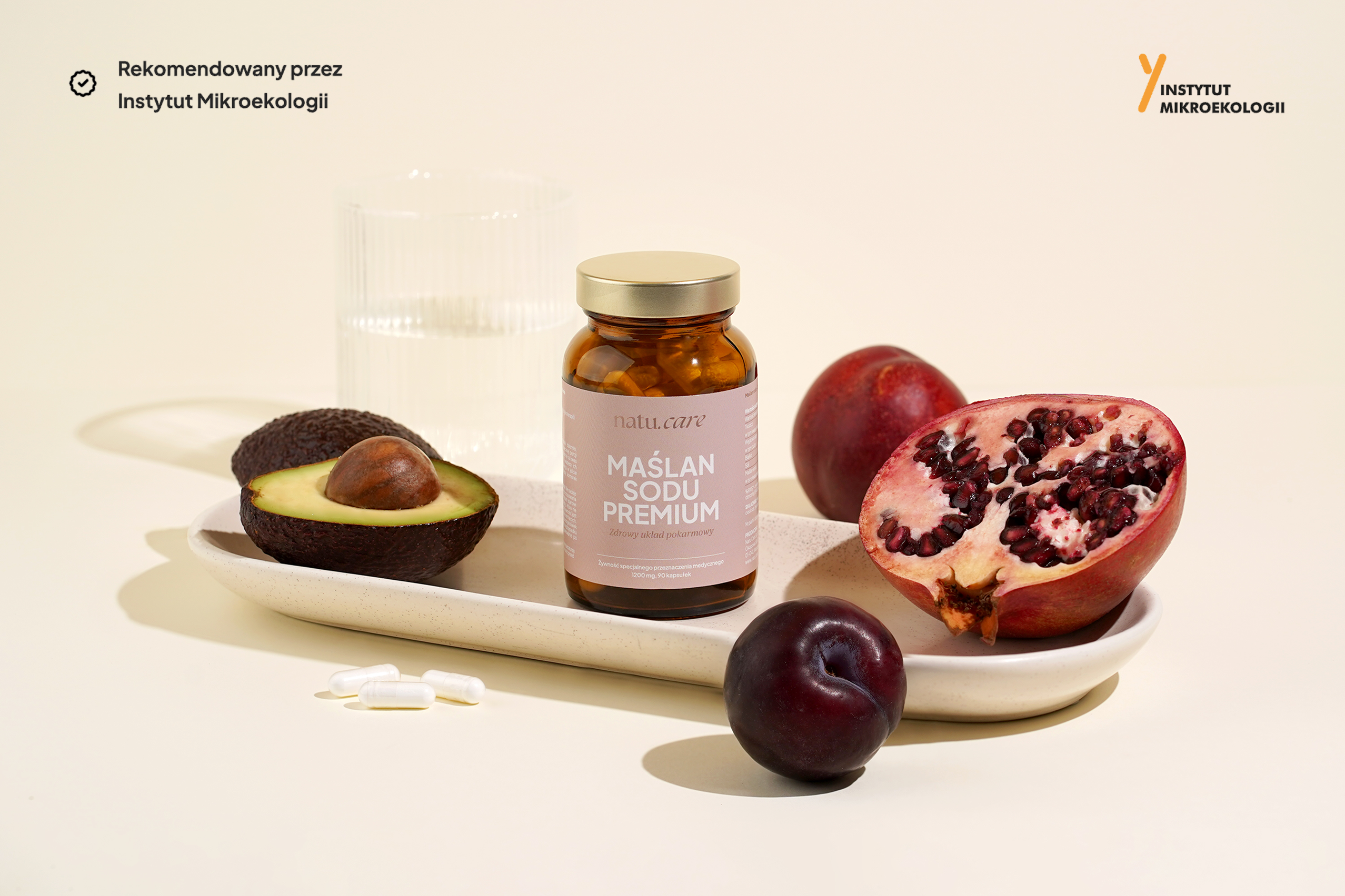
Odkryj korzyści, jakie niesie ze sobą Maślan Sodu Premium od Natu.Care!
Natu.Care Maślan Sodu Premium
Poznaj Maślan Sodu Premium – najwyższej jakości suplement wspierający zdrowie jelit. Maślan sodu pomaga w regeneracji nabłonka jelitowego, poprawia trawienie i wspiera naturalną równowagę mikroflory.
Sprawdź cenę
W końcu się lepiej czuję! Pożegnałam się ze wzdęciami i zaparciami a do tego poprawił się stan mojej cery bo zdrowe jelita to też zdrowa i piękna skóra. Polecam!@Klaudia F.
See also:
.
- Probiotics
- Synbiotics
- Psychobiotics
- Butyric acid
- Antioxidants
- Adaptogens
- Best liver supplements
- Best heartburn pills
- Best over-the-counter sleep pills
What is a prebiotic?
.
A prebiotic is a substance, usually found in certain foods, that stimulates the growth and activity of probiotic bacteria in your digestive system.
Most prebiotics are special types of fibre that are not digestible by humans but can be fermented by selected types of bacteria, primarily those that benefit health, such as Bifidobacteria and Lactobacillusand.
Prebiotics play a key role in the proper functioning of the body, helping to improve nutrient absorption, improve gut health, and support overall immunity.
Prebiotic vs probiotic - what's the difference?
.
Prebiotics and probiotics, despite their similar name, have different functions in the body. However, both are very important for the proper functioning of the body.
Prebiotics are indigestible food components that are fermented by bacteria in your digestive system, stimulating the growth of beneficial gut microflora. Prebiotics occur naturally in many food sources, such as garlic, onions and bananas. Either as a dietary ingredient or as a food additive, they have health benefits by promoting the growth and activity of gut bacteriaand.
On the other hand, probiotics are living organisms - mainly bacteria, but also some types of yeast - that, when consumed in adequate amounts, have a beneficial effect on your health. You can find them in many foods, such as yoghurt and other fermented dairy foods. They are also available as dietary supplements. Probiotics can help improve gastrointestinal function, support the immune system and overall body functionand.
In a nutshell prebiotics are food for the good bacteria in your digestive system. Probiotics, on the other hand, are the very 'good' bacteria that support your body's function.
Best supplements for gut health
Premium Sodium Butyrate
Product description
Premium Sodium Butyrate is a natural support for your digestive system. With a high dose of butyric acid (940 mg), it supports the regeneration of the intestinal mucosa, improving gut health and function, and aids in the absorption of nutrients. By taking care of your intestines, you're taking care of the health of your entire body.
Studies involving people suffering from irritable bowel syndrome confirm that sodium butyrate is ideal for supporting issues related to bacterial flora imbalances (for example, after antibiotic therapy), constipation and diarrhea, inflammation of the intestinal mucosa, or a diet low in fiber.
Premium Sodium Butyrate capsules are made using the innovative DRcaps® technology. This guarantees that the active ingredients in the product are protected from the destructive effects of stomach acids and digestive enzymes. As a result, we can be sure that the beneficial ingredients are released in the small intestine and are fully absorbed by our body.
Premium Sodium Butyrate from Natu Care is 100% tested, and its composition contains only the highest quality raw materials.
Pros and cons
Pros:
- Supports digestive system function
- Helpful for various gastrointestinal conditions, including IBS
- High dose of butyric acid in each capsule
- Eco-friendly, clean, and tested composition
- Free from added sugar, gluten, GMOs, and lactose
- Innovative capsule technology - DRcaps
Cons:
- None
Additional Information
Take 3 capsules daily at any time of the day, preferably with a meal. Swallow the capsules whole with water.
Premium Sodium Butyrate is intended for adults.
The product should be used under medical supervision.
User review
I've been using the product for 2 weeks. My stomach feels lighter, and my digestion has improved. I recommend it.
Sundose° Daily Lightness°
Product description
Sundose° Daily Lightness° is a formula thatós supports the stomach and liver, reduces the frequency of gasóing and bloating, and supports optimal digestion. The formula contains no unnecessary additivesós, and the composition of the active ingredients (e.g. curcumin with piperine) mutually enhances their absorption.
The dietary supplement from Sundose comes in two flavour versions: orange and green.
Pros and cons
Sundose° Daily Lightness° is a formula thatós supports the stomach and liver, reduces the frequency of gasóing and bloating, and supports optimal digestion. The formula contains no unnecessary additivesós, and the composition of the active ingredients (e.g. curcumin with piperine) mutually enhances their absorption.
The dietary supplement from Sundose comes in two flavour versions: orange and green.
Additional information
Sundose° Daily Lightness° is a formula thatós supports the stomach and liver, reduces the frequency of gasóing and bloating, and supports optimal digestion. The formula contains no unnecessary additivesós, and the composition of the active ingredients (e.g. curcumin with piperine) mutually enhances their absorption.
The dietary supplement from Sundose comes in two flavour versions: orange and green.
Sundose° Daily Lightness° is a formula thatós supports the stomach and liver, reduces the frequency of gasóing and bloating, and supports optimal digestion. The formula contains no unnecessary additivesós, and the composition of the active ingredients (e.g. curcumin with piperine) mutually enhances their absorption.
The dietary supplement from Sundose comes in two flavour versions: orange and green.
Asecurin IB
Product description
Asecurin IB is a synbiotic, i.e. a combination of a probiotic and a prebiotic. It contains bacteria and yeast to support the intestines and digestive system, as well as inulin, whichós food for these microorganisms. The addition of a prebiotic supports and accelerates the growth of beneficial bacterial flora in the intestines.
Pros and cons
Asecurin IB is a synbiotic, i.e. a combination of a probiotic and a prebiotic. It contains bacteria and yeast to support the intestines and digestive system, as well as inulin, whichós food for these microorganisms. The addition of a prebiotic supports and accelerates the growth of beneficial bacterial flora in the intestines.
Additional information
Asecurin IB is a synbiotic, i.e. a combination of a probiotic and a prebiotic. It contains bacteria and yeast to support the intestines and digestive system, as well as inulin, whichós food for these microorganisms. The addition of a prebiotic supports and accelerates the growth of beneficial bacterial flora in the intestines.
Biocodex Enterol
Product description
Enterol is an OTC medicine containing a strain of yeastów particularlyóhelpful in the treatment of diarrhoea caused by infections or so-called travel diarrhoea. It is also recommended as a protective treatment of the intestines during antibiotic intake.
.
Pros and cons
Enterol is an OTC medicine containing a strain of yeastów particularlyóhelpful in the treatment of diarrhoea caused by infections or so-called travel diarrhoea. It is also recommended as a protective treatment of the intestines during antibiotic intake.
.
Additional information
Enterol is an OTC medicine containing a strain of yeastów particularlyóhelpful in the treatment of diarrhoea caused by infections or so-called travel diarrhoea. It is also recommended as a protective treatment of the intestines during antibiotic intake.
.
Enterol is an OTC medicine containing a strain of yeastów particularlyóhelpful in the treatment of diarrhoea caused by infections or so-called travel diarrhoea. It is also recommended as a protective treatment of the intestines during antibiotic intake.
.
Product description
Using Panaseus Digestive Formula can help improve intestinal health by supporting the intestinal barrier, reducing inflammation, protecting against damage and restoring healthy intestinal microflora.
Experience a rós difference in gut function with plant extracts, amino acids and probiotic bacteria.
Pros and cons
Using Panaseus Digestive Formula can help improve intestinal health by supporting the intestinal barrier, reducing inflammation, protecting against damage and restoring healthy intestinal microflora.
Experience a rós difference in gut function with plant extracts, amino acids and probiotic bacteria.
Additional information
Using Panaseus Digestive Formula can help improve intestinal health by supporting the intestinal barrier, reducing inflammation, protecting against damage and restoring healthy intestinal microflora.
Experience a rós difference in gut function with plant extracts, amino acids and probiotic bacteria.
What is a prebiotic and probiotic in one supplement?
A supplement that contains probiotics and prebiotics at the same time is called a synbiotic.
The principle behind synbiotics is the synergy between probiotics - living organisms that have a beneficial effect on your body (primarily the digestive system) - and prebiotics, which are small particles that are not digested by the digestive system, but serve as 'food' for the probioticsand.
.
Synbiotics allow these two components to complement each other - the prebiotics stimulate the growth and activity of the probiotics, which in turn help to maintain a healthy bacterial flora in the digestive system. Synbiotics can therefore enhance the effectiveness of both prebiotics and probiotics while providing health benefits.
Probiotic + prebiotic - how to use?
.
The complementary use of probiotics and prebiotics, or synbiotics, depends on the specific recommendations on the product label or given by your doctor or dietician.
Probiotics and prebiotics should be used together.
First and foremost, it is advisable to ensure that they are taken with a meal. This will allow them to be better assimilated. It is also important to pay attention to the regularity of use (as recommended) and not to stop the therapy on your own (especially after antibiotic therapy).
Particularly after antibiotic treatment.
See also:
.
What does a prebiotic help?
.
Prebiotics are important food components that stimulate the growth and activity of beneficial gut microflora, playing an important role in health. While they are important for the overall balance of gut bacteria, they also show a number of specific health benefits.
Improve gut health
.
Prebiotics improve gut health by stimulating the growth of beneficial gut microflora, and also produce short-chain fatty acids (mainly sodium butyrate), which are important for intestinal epithelial cells and help maintain the integrity of the intestinal barrierand.
Additionally, they can reduce inflammation in the gut, which is helpful in diseases such as Crohn's disease and help alleviate symptoms of irritable bowel syndrome.
It is also worth mentioning that prebiotics help to lower the levels of "bad" cholesterol, i.e. the LDL fraction, support the pH level of the intestinal contents or speed up the elimination of toxic substances from the body..
 .
.
Daria KotekDirector of Science and Promotion at the Institute of Microecology in Poznan
How prebiotics support gut healthand?
- .
- Stimulate the growth of beneficial gut microflora. Prebiotics provide 'food' for beneficial gut microflora, including bacteria such as Lactobacillus and Bifidobacterium. The growth of these bacteria may contribute to a better balance of intestinal microflora, which is crucial for overall intestinal health.
- Production of short-chain fatty acids. When prebiotics are fermented by gut bacteria, short-chain fatty acids are produced. Some of these, such as sodium butyrate, are a major source of energy for intestinal epithelial cells and play an important role in maintaining the integrity of the intestinal barrier.
- Reduce inflammation. Prebiotics, by supporting beneficial intestinal microflora and producing short-chain fatty acids, can help reduce inflammation in the gut. A selection of them have potent anti-inflammatory properties, so they can help relieve inflammation in diseases such as Crohn's disease and colitis.
- Alleviation of irritable bowel syndrome symptoms. Some studies suggest that prebiotics may help to alleviate irritable bowel syndrome (IBS) symptoms, such as abdominal pain, bloating and irregular stools.
Particularly in the constipated form of IBS, it is useful to include prebiotics, which are soluble fibre, in the diet.
.

Daria KotekDirector of Science and Promotion at the Institute of Microecology in Poznan
.
Prebiotics in combination with probiotics also support the gastrointestinal tract with infection Helicobacter Pylori, stomach ulcers and the use of NSAIDs and even regular paracetamol.
 .
.
Julia SkrajdaDietitian
.Immune system support
.
Prebiotics have important functions in modulating the immune system. They occur naturally in many foods, and their regular consumption can help to strengthen immune mechanisms.
.
Prebiotics are a key component of the digestive system.
Prebiotics can stimulate the production of antibodies or activate certain immune cells, helping to fight pathogens.
|
Action . |
How does it support immunity?and |
|
Modulating gut microflora . |
Prebiotics provide 'fuel' for beneficial gut microflora, stimulating its growth and activity. These beneficial bacteria - such as Bifidobacteria and Lactobacillus - are not only crucial for digestive health, but also play an important role in the immune system, helping to regulate the immune response to pathogens. |
|
Improve the integrity of the intestinal barrier . |
The fermentation of prebiotics by intestinal bacteria produces short-chain fatty acids. Some of these are the main source of energy for intestinal epithelial cells, supporting the integrity of the intestinal barrier. This barrier is the first line of defence against pathogens and toxins, so maintaining its integrity is important for immune system health. |
|
Regulation of immune responses |
Prebiotics, by supporting healthy gut microflora, can influence the modulation of immune responses. For example, certain acidifying gut bacteria stimulated by prebiotics can stimulate the production of antibodies or activate certain immune cells, helping to fight pathogens. |
|
Alleviation of inflammation |
Prebiotics can help reduce inflammation in the body by affecting the gut microflora and the production of short-chain fatty acids. Inflammation is often associated with an inappropriate immune system response and can lead to many chronic diseases, so alleviating it is key to maintaining health. Prebiotics can help reduce inflammation. |
Heart health support
.
Prebiotics, such as inulin and fructooligosaccharides, have been studied for their ability to regulate lipids in the body. Studies have shown that regular consumption of prebiotics can help reduce LDL cholesterol (the so-called 'bad' cholesterol) and triglycerides, which are important risk factors for heart diseaseand.
Additionally, prebiotics may also help to regulate blood pressure. Some studies suggest, that they may lower blood pressure in people with hypertension, resulting in a reduced risk of cardiovascular diseaseand.
Remember, however, that prebiotics, which have potential benefits for heart health, should be used as part of a balanced diet and healthy lifestyle, and not as a substitute for pharmacological treatment prescribed by a doctor.
Positive effects on bones
.
Prebiotics such as inulin and fructooligosaccharides (FOS) can improve the absorption of minerals such as calcium and magnesium, which are essential for bone and dental health. They contribute to this by improving the balance of the gut microflora and creating favourable conditions in the gut for the absorption of these ingredientsand.
What are natural prebiotics?
.
Natural prebiotics are substances found in various foods that act as 'food' for beneficial gut bacteria. You can find examples of prebiotics in foods in many types of food, especially those that are high in fibre.
What are the natural prebiotics in the dietand?
- Clove, .
- clove, .
- leek
- asparagus, .
- bananas, .
- apple, .
- beets, .
- blueberries, .
- oat flakes, .
Oatmeal works best prebiotically when it has been pre-soaked in water (for several hours). This will reduce the amount of phytic acid, which inhibits the secretion of pepsin (a digestive enzyme).
 .
.
Julia SkrajdaDietitian
..
When is it worth taking a prebiotic?
.
Considering the benefits of prebiotic consumption, it is worth considering prebiotics for digestive problems, increased immune needs, poor diet, post antibiotic therapy and metabolic syndromesand.
- Digestion problems. Prebiotics stimulate the growth of 'good' bacteria in the gut, which facilitates digestion. This can help to counteract common digestive problems such as constipation or diarrhoea.
- Improve the immune system. A healthy gut flora is crucial for your immune system. Prebiotics support its function, which translates into an overall immune system.
- Prebiotics help to support its function.
- Unhealthy diet. If your diet is not rich in natural prebiotic-containing foods such as fruits, vegetables or whole grains, supplementation can compensate for these deficiencies.
- After antibiotic therapy. Antibiotics tend to disrupt the balance of bacteria in the digestive tract. Prebiotics can prevent the adverse effects of antibiotics by supporting the 'good' bacteria.
Where to buy a prebiotic?
.You can buy a prebiotic from both pharmacies and stationary shops. However, you will not find prebiotics in drug form - all preparations are dietary supplements.
How to take a prebiotic supplement
.
Prebiotic supplements should be taken according to the manufacturer's recommendations, which are usually on the product label. It is recommended to take them during or after a meal to minimise possible side effects such as bloating.
It is also important to remember that a prebiotic is not the same as a prebiotic, so it is worth considering your reasons for supplementing it in your diet and choosing the right substance. Even more so if you want to combine it with probiotics at the same time. Some bacterial strains have specific requirements for their nutrient solution. What's more, your gut may also react differently to individual prebiotics..
 .
.
Julia SkrajdaDietitian
.Can you overdose on a prebiotic?
Yes, it is possible to overdose on a prebiotic, but this is a very rare problem. Over-consumption of prebiotics can lead to gastrointestinal problems such as bloating, gas, abdominal pain and even diarrhoea.
The following is an example.
These symptoms are due to the high activity of the intestinal bacteria that ferment prebiotics. Therefore, it is always advisable to start with a lower dose and gradually increase it, allowing the body to adjust to the increased fibre intake. Additionally, if you notice any worrying symptoms, contact your doctorand.
Note
.People with SIBO syndrome, a condition of excessive microbiota growth in the gut, should also be cautious. Prebiotics are not recommended in such cases, as they can further exacerbate bacterial proliferation and thus SIBO symptoms. Prebiotics in cosmetics
Prebiotics are increasingly used in the cosmetics industry as an ingredient in many skin and hair care products. They are mainly appreciated for their ability to support the 'good' bacteria on the skin, which helps to keep the complexion healthyand.
Prebiotics in cosmetic products can help to reduce irritation, increase hydration, seal the skin barrier and protect against negative environmental effects such as air pollution .
.
However, it is worth remembering that, as with all cosmetics, the degree of efficacy varies and depends on the specific product and the individual skin's response to the chosen cosmetic.
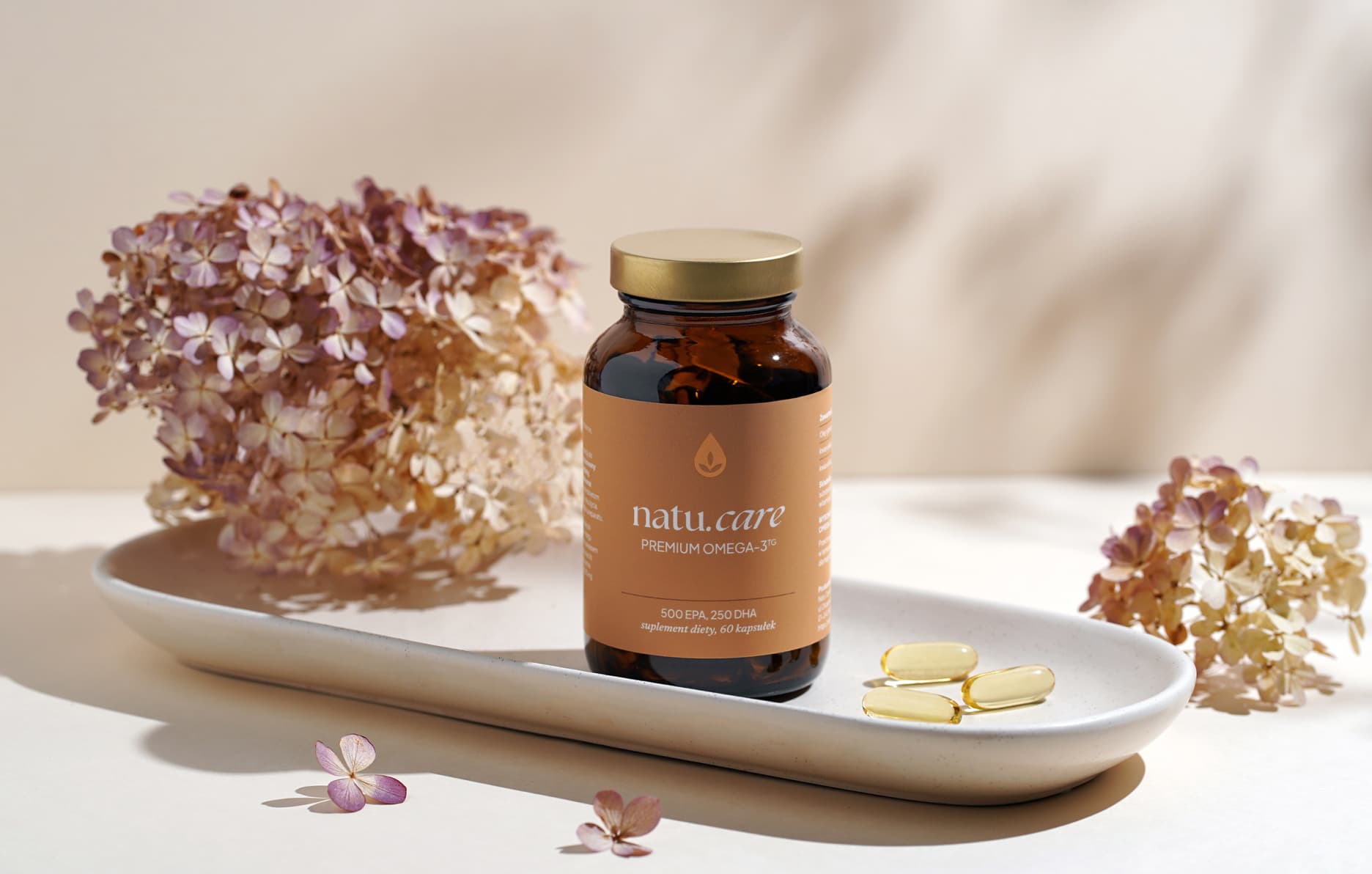
Sprawdź, za co pokochały go tysiące klientek Natu.Care Premium Omega-3ᵀᴳ -15% z kodem BLOG15
Natu.Care Omega-3ᵀᴳ Premium
Natu.Care Omega-3ᵀᴳ Premium dla zdrowia serca, mózgu i odporności. Najlepsza przyswajalność. Optymalna dawka 750 mg. Przebadana przez niezależne laboratorium.
Zobacz więcej
Produkt ma super skład, transparentną etykietę i co dla mnie jest ważne – małe kapsułki do połknięcia. Nie ma też nieprzyjemnego efektu odbijania rybą, który miałam spożywając inne produkty. Widzę znaczną poprawę odporności. Polecam!@Kasia P.
Summary
.
- Prebiotic is a substance that stimulates the growth and activity of probiotic bacteria in the gastrointestinal tract.
- Prebiotic is a substance that stimulates the growth and activity of probiotic bacteria in the gastrointestinal tract.
- Prebiotics stimulate the growth of beneficial intestinal microflora, while probiotics are those good bacteria that are fed by prebiotics. .
- Synbiotics are supplements that contain probiotics and prebiotics at the same time, which complement each other.
- Prebiotics improve gut health, support the immune system, help regulate cholesterol levels and support bone health. .
- Eating prebiotics is particularly recommended for people with digestive problems and after antibiotic therapy.
- Prebiotics are increasingly used in cosmetics because of their ability to support good bacteria on the skin.
FAQ
.Are prebiotics safe for children?
.Yes, prebiotics are generally safe for children. What's more, they are an important part of a diet that supports the healthy development of little ones. Prebiotics are naturally present in foods such as bananas and onions.
Can prebiotics support the fight against infections?
.Prebiotics can improve the functioning of the immune system. By stimulating the gut microflora, which is an important part of the immune system, prebiotics can help fight infections. They also support the activation of immune system cells and help maintain the integrity of the intestinal barrier, which further protects the body from pathogens.
Can prebiotics be consumed permanently?
.Prebiotics can and are even recommended to be consumed permanently by including them in the daily diet. They are a natural ingredient in many foods and should not cause adverse effects with long-term use. Prebiotics strengthen immunity, support digestion and help maintain the health of the digestive system.
The situation is slightly different with prebiotic preparations. These are unlikely to be recommended to take on a permanent basis. The exception to this is other doctor's recommendations.
Prebiotics are not recommended.
Can prebiotics only be supplied to the body via supplements?"
.No, prebiotics are found in many foods that you can and should include in your diet. These include garlic, onions, asparagus, bananas, apples, oatmeal, beetroot or blackberries, among others. By consuming these foods on a daily basis, you can provide your body with the necessary prebiotics without having to resort to supplements.
Can a prebiotic be combined with an antibiotic?
.Yes, prebiotics can be used in parallel with antibiotics. In fact, it is recommended because antibiotics can upset the balance of the gut microflora, destroying both 'bad' and 'good' bacteria. Prebiotics help to rebuild and stimulate the growth of these 'good' bacteria, speeding up the recovery of the microflora after antibiotic treatment.
Can prebiotics help with irritable bowel syndrome (IBS)?
.Yes, some studies suggest that prebiotics may help relieve irritable bowel syndrome (IBS) symptoms such as abdominal pain, bloating and stool irregularity. They stimulate the growth of beneficial gut microflora, which contributes to a better microbial balance in the gut. This can dramatically improve the quality of life for people with IBS.
.
Resources
.See all
.Antihypertensive Properties of Plant-Based Prebiotics-PMC. (n.d.). Downloaded 19 Sep 2023, from https://www.ncbi.nlm.nih.gov/pmc/articles/PMC2812835/
Carlson, J. L., Erickson, J. M., Lloyd, B. B., & Slavin, J. L. (2018). Health Effects and Sources of Prebiotic Dietary Fiber. Current Developments in Nutrition, 2(3), nzy005. https://doi.org/10.1093/cdn/nzy005
Chlebicz-Wójcik, A., & Sliżewska, K. (2021). Probiotics, Prebiotics, and Synbiotics in the Irritable Bowel Syndrome Treatment: A Review. Biomolecules, 11(8), 1154. https://doi.org/10.3390/biom11081154
Chow, J. (2002). Probiotics and prebiotics: A brief overview. Journal of Renal Nutrition: The Official Journal of the Council on Renal Nutrition of the National Kidney Foundation, 12(2), 76-86. https://doi.org/10.1053/jren.2002.31759
Cummings, J. H., & Macfarlane, G. T. (2002). Gastrointestinal effects of prebiotics. The British Journal of Nutrition, 87 Suppl 2, S145-151. https://doi.org/10.1079/BJNBJN/2002530
Davani-Davari, D., Negahdaripour, M., Karimzadeh, I., Seifan, M., Mohkam, M., Masoumi, S. J., Berenjian, A., & Ghasemi, Y. (2019). Prebiotics: Definition, Types, Sources, Mechanisms, and Clinical Applications. Foods (Basel, Switzerland), 8(3), 92. https://doi.org/10.3390/foods8030092
de Vrese, M., & Schrezenmeir, J. (2008). Probiotics, prebiotics, and synbiotics. Advances in Biochemical Engineering/Biotechnology, 111, 1-66. https://doi.org/10.1007/10_2008_097
Hughes, R. L., Alvarado, D. A., Swanson, K. S., & Holscher, H. D. (2021). The Prebiotic Potential of Inulin-Type Fructans: A Systematic Review. Advances in Nutrition, 13(2), 492-529. https://doi.org/10.1093/advances/nmab119
Naseer, M., Poola, S., Uraz, S., & Tahan, V. (2020). Therapeutic Effects of Prebiotics on Constipation: A Schematic Review. Current Clinical Pharmacology, 15(3), 207-215. https://doi.org/10.2174/1574884715666200212125035
Oniszczuk, A., Oniszczuk, T., Gancarz, M., & Szymańska, J. (2021). Role of Gut Microbiota, Probiotics and Prebiotics in the Cardiovascular Diseases. Molecules (Basel, Switzerland), 26(4), 1172. https://doi.org/10.3390/molecules26041172
Ooi, L.-G., & Liong, M.-T. (2010). Cholesterol-Lowering Effects of Probiotics and Prebiotics: A Review of in Vivo and in Vitro Findings. International Journal of Molecular Sciences, 11(6), 2499-2522. https://doi.org/10.3390/ijms11062499
Pandey, Kavita. R., Naik, Suresh. R., & Vakil, Babu. V. (2015). Probiotics, prebiotics and synbiotics- a review. Journal of Food Science and Technology, 52(12), 7577-7587. https://doi.org/10.1007/s13197-015-1921-1
Peterson, C. T., Rodionov, D. A., Iablokov, S. N., Pung, M. A., Chopra, D., Mills, P. J., & Peterson, S. N. (2019). Prebiotic Potential of Culinary Spices Used to Support Digestion and Bioabsorption. Evidence-Based Complementary and Alternative Medicine: eCAM, 2019, 8973704. https://doi.org/10.1155/2019/8973704
Quigley, E. M. M. (2019). Prebiotics and Probiotics in Digestive Health. Clinical Gastroenterology and Hepatology: The Official Clinical Practice Journal of the American Gastroenterological Association, 17(2), 333-344. https://doi.org/10.1016/j.cgh.2018.09.028
Sanders, M. E., Merenstein, D. J., Reid, G., Gibson, G. R., & Rastall, R. A. (2019). Probiotics and prebiotics in intestinal health and disease: From biology to the clinic. Nature Reviews. Gastroenterology & Hepatology, 16(10), 605–616. https://doi.org/10.1038/s41575-019-0173-3
Tuohy, K. M., Probert, H. M., Smejkal, C. W., & Gibson, G. R. (2003). Using probiotics and prebiotics to improve gut health. Drug Discovery Today, 8(15), 692-700. https://doi.org/10.1016/s1359-6446(03)02746-6
Whisner, C. M., & Castillo, L. F. (2018). Prebiotics, Bone and Mineral Metabolism. Calcified Tissue International, 102(4), 443-479. https://doi.org/10.1007/s00223-017-0339-3
.
Editorials
Meet the team


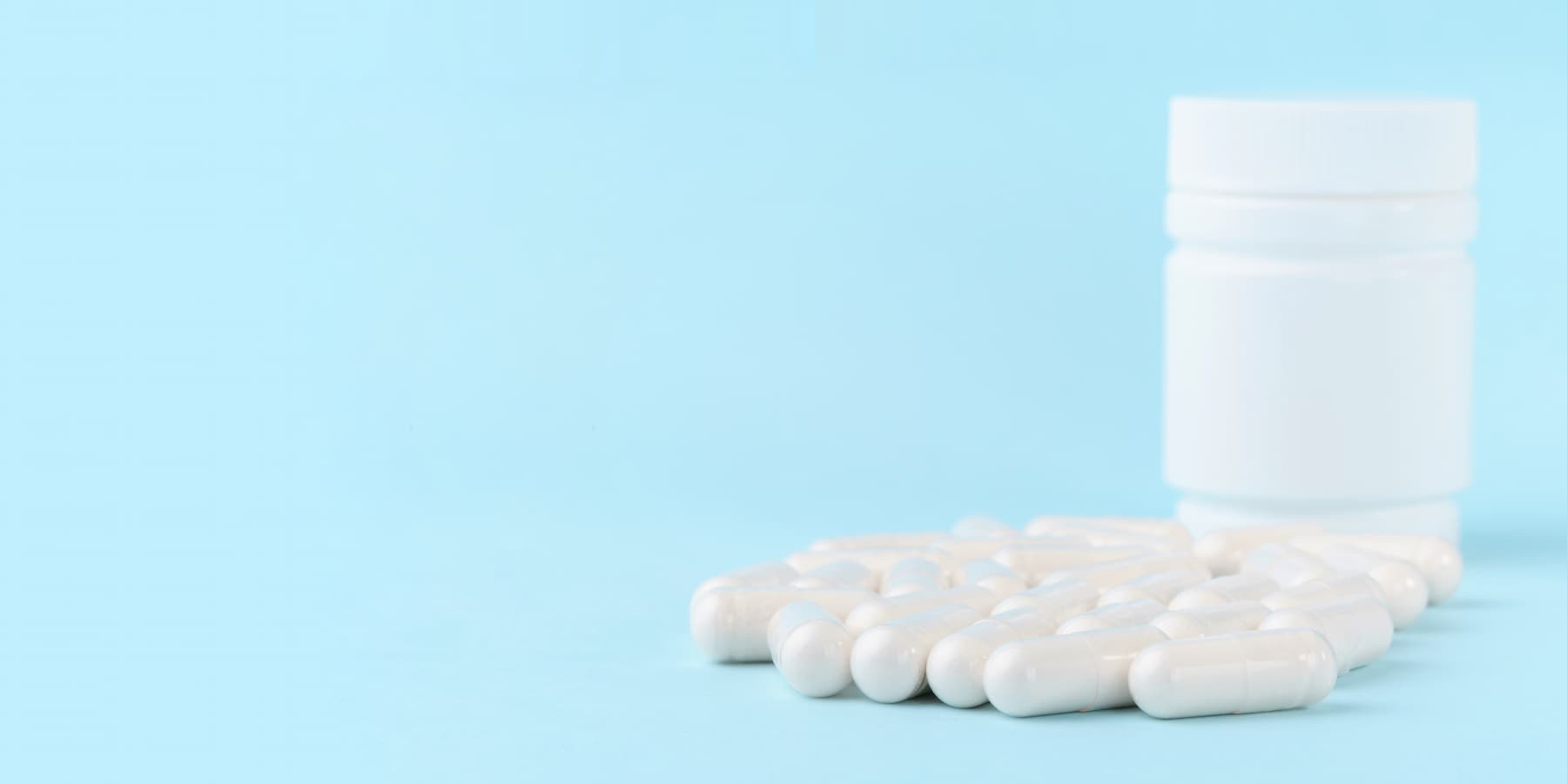
Chondroitin helps the joints and other elements of the body.

Glutathione is one of the most potent antioxidants for supporting the body's health. Find out how it works and where to get it from.

See why hip joints hurt and how to treat their ailments.
